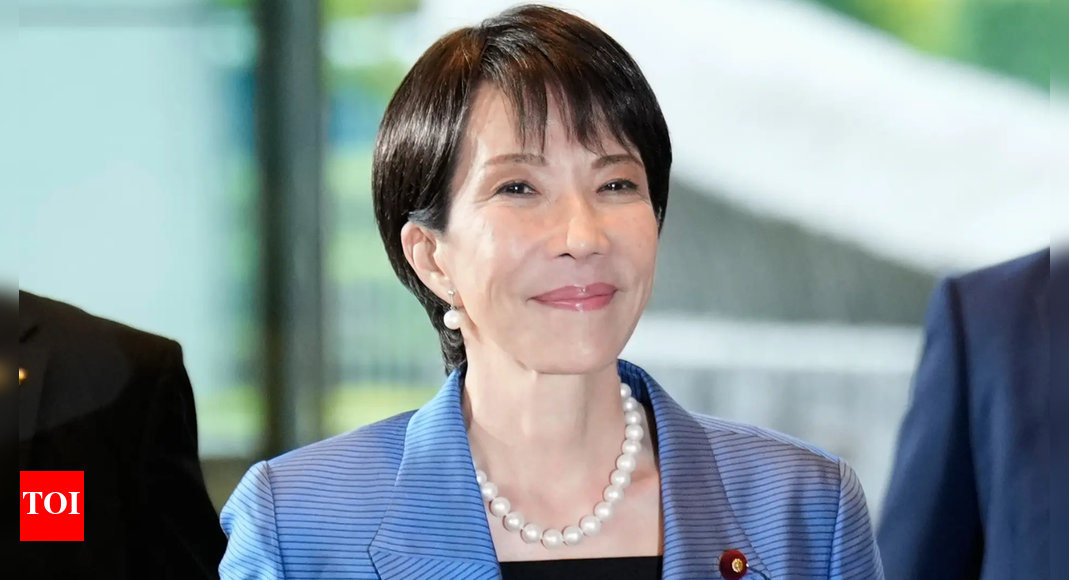China's 'Wolf Warrior' Diplomacy Reignites: Diplomat Threatens Japan PM Over Taiwan Stance, Escalating Tensions
 China
International Relations
China
International Relations

China's "Wolf Warrior" diplomacy returns with a diplomat threatening Japan's PM over Taiwan comments, escalating long-standing tensions. The remarks broke Japan
China's "Wolf Warrior" Diplomacy Reignites Amidst Taiwan Tensions with Japan
The diplomatic landscape between China and Japan has experienced a dramatic and unsettling shift, signaling a potent resurgence of Beijing's assertive "Wolf Warrior" foreign policy. This abrupt turn follows incendiary remarks made by Japan's new Prime Minister, Sanae Takaichi, concerning Taiwan. Less than a month into her tenure, Takaichi's comments have shattered an incipient period of cordiality with Beijing and provoked a torrent of condemnation, including a chilling, explicit threat from a senior Chinese diplomat.
Taiwan Comments Spark Diplomatic Fury
Just weeks after a seemingly warm encounter with China's leader, Xi Jinping, in South Korea, Prime Minister Takaichi ignited a firestorm. During a parliamentary inquiry about potential "survival-threatening situations" – a classification that, under Japanese law, allows for military deployment – she stated that a Chinese attempt to blockade or seize Taiwan could indeed trigger such a scenario. Taiwan, an island situated fewer than 70 miles from Japanese territory, is strategically vital for Japan's economic survival due to its crucial shipping lanes.
Takaichi initially emphasized, "If it involves the use of warships and the use of force, I believe that this could constitute an existential threat, no matter how you look at it." While she later slightly recalibrated her stance, stressing that her comments did not signify a change in government policy, China's Foreign Ministry remained unappeased. Beijing demanded a retraction, accusing Japan of using the "so-called 'crisis of survival'" as a pretext for aggression and referencing its colonial past in Taiwan before 1945, when it committed "innumerable crimes."
Historical Grievances Fuel Current Tensions
This latest eruption taps into a deep well of historical animosity between the two Asian giants. Relations have for decades been prone to intense feuds, largely rooted in China's enduring bitterness over World War II atrocities, such as the devastating 1937 Nanjing Massacre. Beijing maintains that Tokyo has never adequately apologized for these historical crimes.
Beijing's Vehement Retaliation
The ferocity of China's response to Takaichi's remarks has been striking and multifaceted. Hu Xijin, a prominent Chinese nationalist and former editor of the state-run Global Times, publicly branded Takaichi an "evil witch" on social media, accusing her of "successfully ignited a new explosion of mutual hatred between Chinese and Japanese public opinion."
China Central Television (CCTV), the state broadcaster, ran a commentary warning that Japanese leaders who interfere with Taiwan's affairs are "doomed to dig their own graves." The commentary added, "Those who ignite the fire will be burned by it," drawing ominous parallels between Takaichi's reference to "survival-threatening situations" and Japan's 1931 invasion of Manchuria in northeastern China.
Shifting Strategic Ambiguity on Taiwan
Crucially, Takaichi's initial comment diverged from Japan's long-standing policy of strategic ambiguity concerning Taiwan. Historically, Japan, much like its close military ally the United States, has avoided explicit mentions of Taiwan in the context of potential military action. Even prominent hawks like former Prime Minister Shinzo Abe, Takaichi's political mentor, maintained this vagueness, preferring a general expression of solidarity: "A Taiwan crisis is Japan's crisis." However, Takaichi, a vocal defender of Taiwan and known for her hawkish views on China, broke this diplomatic mold.
Beijing's particular sensitivity to Japanese statements on Taiwan also stems from Japan's complex colonial history. Japan ruled the island from 1895 to 1945, leaving behind an educated elite that often felt closer to Japan than mainland China. This historical legacy was epitomized by Taiwan's first democratically elected president, Lee Teng-hui, who spoke fluent Japanese and presided over the island's transition to full democracy in the 1990s, routinely denounced by Beijing as a "Japanese agent."
The Diplomat's Threat and International Condemnation
The most extreme and controversial reaction came from Xue Jian, China's consul general in Osaka, Japan. In a now-deleted post on social media platform X (formerly Twitter), written in Japanese, he issued a chilling threat directed at Takaichi: "That filthy head that has come charging forward on its own accord will have to be cut off without a moment's hesitation. Are you prepared for that?"
This statement was widely interpreted by senior political figures in both governing and opposition parties in Japan as a direct death threat, leading to immediate demands for Xue's expulsion. The U.S. Ambassador in Tokyo, George Glass, also weighed in with a sharp rebuke, posting, "The mask slips -- again. Time for Beijing to behave like the 'good neighbor' it talks repeatedly about -- but fails repeatedly to become."
This incident marks a clear and alarming escalation in Sino-Japanese tensions, demonstrating China's renewed willingness to employ aggressive diplomatic tactics in response to perceived challenges to its core interests, particularly concerning the sovereignty and future of Taiwan.